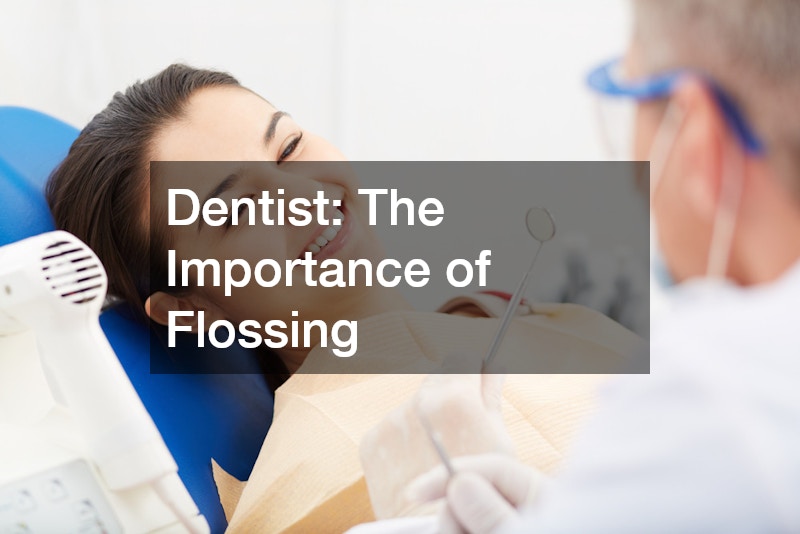Maintaining good dental hygiene is about far more than just having a bright smile—it’s a cornerstone of overall health. Oral health affects everything from our ability to eat and speak comfortably to our confidence and even our risk for systemic diseases. While brushing and flossing daily are vital, they aren’t enough on their own. Professional teeth cleaning, performed by a dental hygienist or dentist, plays a critical role in preventing oral diseases and maintaining long-term dental wellness. Regular cleanings remove buildup that at-home care can’t address, making them essential for a healthy, confident smile.
What Are the Benefits of Regular Teeth Cleaning?
Prevention of Oral Diseases
One of the most significant benefits of professional teeth cleaning is the prevention of oral diseases. Over time, plaque—a sticky film of bacteria—accumulates on teeth and hardens into tartar if not removed. Tartar cannot be removed by brushing or flossing alone and, if left untreated, can lead to cavities, gum inflammation, and periodontal (gum) disease. Regular cleanings remove this buildup, reducing the risk of these common dental issues. Moreover, early detection during cleaning appointments allows dentists to identify potential problems before they become serious, saving patients from discomfort and costly treatments later on.
Enhancing Oral Hygiene
Even the most diligent brushing and flossing routines can miss hard-to-reach areas, particularly around the gum line or between tightly spaced teeth. Professional cleanings complement daily oral hygiene by targeting these neglected spots. Dental hygienists use specialized instruments to remove plaque and tartar deposits, leaving the mouth cleaner and healthier. Additionally, professional cleanings often include fluoride treatments that help strengthen enamel and protect against future decay. By combining home care with regular professional maintenance, individuals can significantly enhance their oral hygiene and overall dental health.
Brightening Your Smile
Beyond health benefits, regular teeth cleanings also contribute to a more radiant smile. Everyday habits such as drinking coffee, tea, or wine, as well as smoking, can lead to surface stains on teeth. During a cleaning, polishing removes many of these stains, restoring a natural brightness and smooth texture to tooth enamel. While professional whitening treatments can further enhance appearance, routine cleanings alone can make a noticeable difference. A cleaner, brighter smile often boosts self-confidence and encourages individuals to maintain better oral care habits.
How Often Should You Get Your Teeth Cleaned by a Dentist?
Recommended Frequency for Dental Visits
Most dental professionals recommend scheduling a cleaning and check-up every six months. This biannual schedule allows for timely removal of tartar and early detection of dental issues before they progress. However, the ideal frequency can vary depending on individual oral health. For some people, particularly those with excellent dental hygiene and no history of gum disease, annual cleanings may suffice. Conversely, others may require more frequent visits.
Signs You Might Need More Frequent Cleanings
Certain signs indicate that more frequent cleanings may be beneficial. Persistent bad breath, bleeding gums while brushing, increased tooth sensitivity, or noticeable tartar buildup are all signals that bacteria and plaque are accumulating faster than normal. Individuals with chronic conditions such as diabetes, smokers, or those prone to gum disease should also consider quarterly cleanings. These groups face a higher risk of oral complications, and regular maintenance can help prevent more serious issues.
Understanding Personal Oral Health Needs
Every person’s oral health needs are unique. Age, lifestyle, medical history, and even genetics can influence how often teeth should be professionally cleaned. A personalized approach, guided by your dentist’s recommendations, ensures the most effective care plan. Regular discussions with your dental provider help you adjust your cleaning schedule based on evolving needs, ensuring long-term oral health and preventing avoidable dental problems.
What Happens During a Professional Teeth Cleaning?
The Cleaning Process Explained
A professional teeth cleaning typically begins with a thorough examination of your mouth. The hygienist checks for signs of decay, inflammation, or other oral health issues. Next comes scaling—the removal of plaque and tartar from tooth surfaces and below the gum line using specialized tools. After scaling, teeth are polished using a gritty toothpaste that removes remaining stains and smooths the enamel. The process often concludes with flossing and, in some cases, a fluoride treatment to strengthen the teeth and prevent cavities.
Tools and Techniques Used by Dentists
Dental hygienists use a variety of tools to ensure a thorough cleaning. Ultrasonic scalers use vibrations to break down tartar deposits efficiently, while manual instruments remove finer buildup. Polishing tools equipped with rubber cups and abrasive pastes help smooth tooth surfaces, making it harder for bacteria to adhere in the future. Suction devices keep the mouth clear throughout the procedure, ensuring comfort and efficiency. The combination of advanced tools and professional expertise allows for a level of cleanliness impossible to achieve at home.
Post-Cleaning Care and Advice
After a professional cleaning, patients often enjoy a fresh, smooth feeling on their teeth and a noticeably cleaner mouth. Dentists typically provide guidance on maintaining these results, including brushing at least twice daily, flossing once a day, and avoiding excessive consumption of staining foods and beverages. They may also recommend specific toothpaste or mouthwash suited to individual needs. Consistent home care combined with regular professional maintenance helps ensure long-term oral health.
Professional teeth cleanings are an essential part of maintaining a healthy mouth and a confident smile. They prevent oral diseases, enhance daily hygiene efforts, and improve the appearance of teeth. While brushing and flossing form the foundation of oral care, regular visits to the dentist ensure that hidden plaque and tartar do not lead to serious problems. Whether scheduled biannually or more frequently based on personal needs, professional cleanings are an investment in lifelong dental health. By prioritizing these visits, individuals can enjoy not only cleaner teeth but also better overall well-being.

